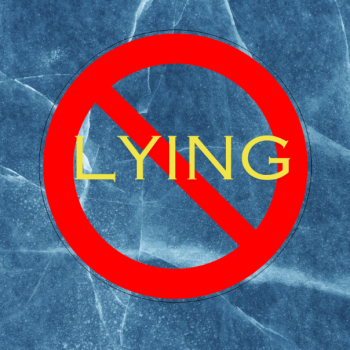R3 Contributor
One of the most common tropes in the Christian faith tradition is that “we are living in perilous times.” This statement customarily refers to the notion of an apocalyptic “end time” where the world as we know it will end (and for those steeped in the traditional Christian eschatology, the second-coming of the Christ will begin – or the 1000 year reign of “the Satan”…. or BOTH… or something like that).
We don’t have to look far to see the evidence of evil. The AuroraMassacre’s stitches haven’t healed well enough to be removed and now the Shooting at the Sikh Temple in Wisconsin has to be processed, both ideologically and theologically (Sikhism ironically is a Hindu Non-Violent Faith tradition). What is it about the evolution of humanity whereby such senseless violence has become “commonplace?”
I believe the pathological perspective that violence (even sacred violence) is a new phenomenon is what is problematic. VIOLENCE HAS ALWAYS BEEN COMMONPLACE (at least since Cain killed Abel for my Biblical supporters of history). The theorizing of apocalyptic personification has been on the precipice of human minds for at least 2000 years. People have consistently been waiting on a savior to redeem humanity from the harsh realities of violence and human oppression. But at some point the “imminent parousia” dissipated for those early faith communities shortly after they began to recognize that Jesus wasn’t coming back so “soon and very soon.” But regardless of our sensitivity to ancient Christocentric cultural criticisms, the fact is, people have hurt, abused, oppressed and killed people for ages. And the world (and the church) rolls on.
What is worth more intense consideration and reflection is the widening divide of “us” and “them” which indirectly supports the violence and oppression perpetuated upon “others” as acceptable and even apocalyptic and violence towards “us” as repugnant. We are too out of touch with our neighbors and many of us think we have been destined or “favored” to be better than our brothers and sisters whom we share the air of the world with. Of course, this dichotomous construction of social hierarchy and separation has existed since the early civilizations had oral legislation and unwritten rules regarding who was entitled to live closest to the rivers. Couple those sentiments with a theology that reinforced the social realities and you have the substratum of empirical tradition.
Yet this divide has continued to be perpetuated by both groups. The apocalypse of otherness has become reciprocal. And it seems that our triumphalistic conditioning and royal consciousness leads us to believe that the Divine Winds blow upon “us” and not “them.” Or worse, we perceive that it’s alright to oppress, abuse and kill “others” just don’t do it to “us.” This lopsided interpretation of the world paralyzes our hermeneutic of self-critique and places us in a straight-jacked of pseudo-righteousness. This is the type of theorizing and theologizing that sets us up as protagonists that can calmly and conveniently wait for the apocalypse and condemn all of the evil activity accelerating the end of the world as something that only happens to “bad people.” This gives us an adequate amount of soul-cleansing to sit idly by as “the world is going to hell in a hand basket” while we rest comfortably on our “Blessed Assurance.”
But the political and religious landscape and the recent shootings are more complex than this. This complexity forces us to wrestle with our hermeneutic of privilege and insensitivity which are elements of the elite-American ethos. Our unfamiliarity with the “other” emerges bluntly in “such a time as
this.” The recent mass murders and our political and theological discourse ought to give our society some serious food for thought. Yet it seems that a type of paralysis has our political, religious and civic leaders unwilling or afraid to address the divisive political and theological issues (i.e. gun law reform) for the sake of the polling bottom line.
While the moderately righteous are quiet, those who consider themselves to be the “divine exception” are willing to project extremist views and, sadly, gain a lot of media attention. Consider the Coalition of African-American Pastors – a group of pastors who are touring to encourage black voters to withdraw their support from the President because these pastors disagree with the President’s stance. As an African-American Pastor I suffice it to say, “THIS GROUP DOESN’T SPEAK FOR ME!” In fact, it grieves me to say that this “otherizing” has become the order of the day.
What we must do is begin to intentionally attack our xenophobia. Part of the reason our times are so “perilous” is not because the end is any nearer than it was in past millenniums but more so because we are all too comfortable in a world of “otherizing.” We are disconnected from conditions of those who are different and thereby constructing alternative realities in order to helps us remain at “ease in Zion.” We have to deconstruct our concepts of any political theory or theology that does not consider its impact on the “other.”
Please make note of this:
If we keep endorsing “otherness”… eventually WE will be the “other.”
As a leader in the faith community, I am deeply concerned with the way some faith leaders seem to be so convinced that they have divine pipeline and autonomy and use this premise as a platform to demonize other people. If we believe anything to be true about God, it ought to be that only God is sovereign. And if this is true, then we as humans are fragile, fickle, fallible and prone to error. Maybe we ought to begin to imply those concepts of Mercy, Love, Justice and respect for our neighbor that Sikh, Muslim, Buddhist, Christian and even some Atheist communities are founded upon.
In the words of my daily devotional reflection, “What WILL the RIGHTEOUS do… TODAY?” – how about LEARN OF OUR NEIGHBORS?!?! #UBUNTU
















